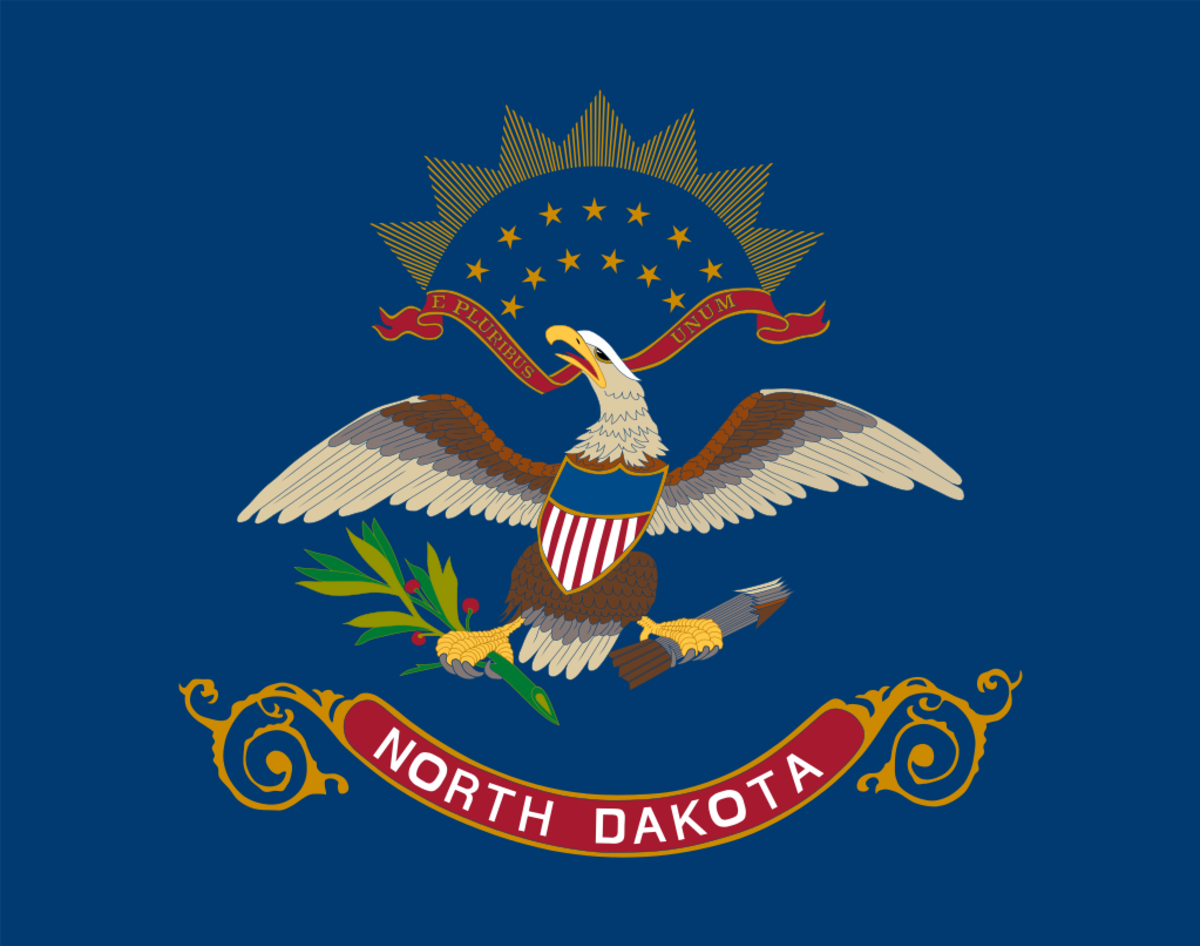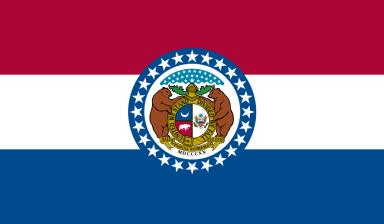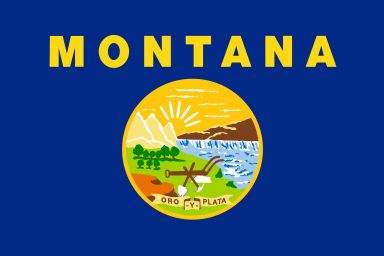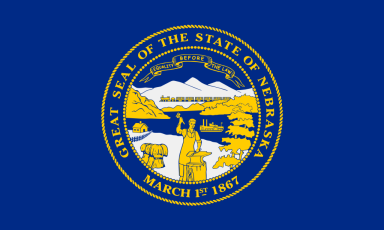North Dakota Employment and Labor Laws

Various North Dakota employment and labor laws have been enacted to improve the state's working conditions over the years. The North Dakota Human Rights Act is one of these major statutes. It not only declared certain discriminatory acts illegal but also enabled the North Dakota Department of Labor and Human Rights to investigate discrimination complaints.
Despite the passage of these regulations, the Department and the Equal Employment Opportunity Commission continue to receive workplace complaints. A Wyoming-based company that formerly had operations in North Dakota, for example, paid $70,000 to settle a dispute with one of its former male employees in 2017 for sexual harassment and sexual orientation discrimination. In another case in 2018, a state construction company was ordered to pay $59,000 to one of its female employees for sexual harassment that forced her to resign.
It is crucial to understand your rights in the workplace. This article will go over various laws in the workplace. Employment laws focus on handling matters between employees and employers, while labor laws are centered on the rights of labor unions and issues between unions and employers. Wages, workplace discrimination, labor unions, and workplace safety are among the topics covered in this article. We will also discuss what wrongful termination is, how to submit a complaint if you were wrongly fired, and the deadlines for filing.
North Dakota Wage and Work Laws
Minimum Wage
According to North Dakota employment and labor laws, the minimum wage is $7.25 per hour. In addition, there are some types of employees who are exempted from the minimum wage:
Employees who work at youth-related, nonprofit organizations focused on education.
Cooks, guides, and camp-tenders for a hunting or fishing guide service.
Actors or extras for a motion picture.
Golf course caddies.
Any employee who works fewer than 20 hours per week for less than three weeks in a row at a company that provides babysitting services.
Student trainees (in some situations).
Certain volunteers.
Overtime Pay
An employee is eligible for overtime pay if they work for more than 40 hours in a week. The rate is 1.5 times the regular rate. However, paid holidays, sick leaves, or paid time off are not counted in the computation.
Different rules apply to some types of employees. If you work for a taxicab company as a driver and work more than 50 hours a week, you are eligible for overtime pay. Meanwhile, hospitals and nursing homes may reach an overtime arrangement with their employees. They can be paid 1.5 times their regular wage if they work more than eight hours each day or more than 80 hours in two weeks.
Certain employees are also exempted from overtime pay:
Agricultural employees.
Administrative and executive employees.
Domestic service employees who live in the household they serve.
Teachers.
Employees with artistic professions like writers, actors, and musicians.
Chief engineers, announcers, and new editors working in radio or TV stations.
Wage Payment
According to wage laws in North Dakota, each employer is required to pay workers at least once each month on agreed-upon and defined regular paydays. They must also provide their employees with a pay voucher or check stub detailing their hourly rate of pay and deductions (including approved ones and those required by state and federal law).
Unpaid compensation or wages for hours worked are due on the usual payday if an employee is suspended or fired.
Wage Deductions
Companies can withhold only particular sorts of payments, such as:
Recurring deductions authorized in writing.
Advances paid to employees (other than undocumented cash).
Nonrecurring deductions for damage, shortage, breakage, or negligence that the employee must authorize at the time of deduction.
Permitted, nonrecurring deductions, the sources of which must be specified in writing.
Leaves
There are various terms used to define taking time off from work. Paid time off, for example, is a form of policy that allows an employee to skip work without losing income. Different forms of time off are available for employees, such as vacation and sick leaves. These can be used to relax and heal until you're ready to return to work.
While no state legislation requires private employers to give paid or unpaid leaves, employees are nonetheless entitled to family and medical leave under the Family and Medical Leave Act if they have been employed for at least 12 months. They must also work for a company that employs at least 50 employees for 20 consecutive work weeks. This law provides up to 12 weeks of leave to heal from a medical condition and 26 weeks to care for a service member.
If you are a public employee (e.g., a member of Team ND), then you are entitled to some types of leaves, such as sick leaves, annual leaves, funeral leaves, or military leaves (for military personnel).
If you are selected for jury duty or to testify as a witness on behalf of your employer, your company must approve your paid leave.
Child Labor Laws
The North Dakota Department of Labor and Human Rights states that the minimum age for residents to begin working is 14. In addition, the employment of teens aged 14 and 15 is regulated. The restrictions for them include these terms:
An Employment and Age Certificate should be submitted, which must be filled out by the teen, parent, and employer.
They can only work for a maximum of three hours on a school day.
Work involving the use of power-driven machines and chemicals, construction work, door-to-door sales, cooking, and driving are all prohibited.
While North Dakota child labor laws don't provide employment restrictions for individuals aged 16 and older, federal child labor laws still apply to them.
Some teenagers are also exempt from some or all of the state's child labor laws if they:
Work directly under the supervision of their parent or guardian, and if that person completely owns the business.
Work on a farm (with restrictions set by federal child labor laws).
Work in domestic service (e.g., performing household work in the employer's private home).
Have met the requirements for exemption from compulsory school attendance.
Any person found guilty of violating child labor laws will be charged with penalties.
North Dakota Workplace Safety Laws
OSHA Regulations
While North Dakota doesn't have its own version of workplace safety laws, federal regulations still apply to the state. The Occupational Safety and Health Act is a federal law that mandates companies to maintain a safe workplace free of hazards that could cause serious harm or death to their employees.
Employers in North Dakota can seek a free consultation from Bismark State College to ensure that their organization is in compliance with workplace rules and regulations. Training, program assessments, and technical assistance are among the services offered by the institution to help enterprises develop systems that provide a safe working environment.
On the other hand, if you are injured at the workplace due to hazardous working conditions, then you are entitled to workers' compensation. The North Dakota Workers' Compensation Act requires all employers to provide workers' compensation insurance for all of their eligible employees. To begin the process, you must report your injury to your employer and submit a First Report of Injury. You can also consult with a lawyer to learn how to receive compensation for work-related injuries.
No Smoking Laws
North Dakota laws prohibit smoking in enclosed areas of workplaces. As a result, smoking is prohibited in areas such as entrances and exits, ventilation systems, air intakes, and moveable windows. Outdoor job locations and cigar lounges (if they meet the requirements) are exempted.
It is the obligation of a business operator, manager, or owner to not only put up no smoking signs but also to tell current and potential employees that smoking is not allowed in the workplace.
North Dakota Workplace Discrimination Laws
Human rights laws in North Dakota prohibit the discrimination of people who belong to a protected class. This means it's illegal for someone to discriminate against another person based on:
Age.
Race.
Color.
Sex.
Religion.
National origin.
Physical or mental disability.
Marital status.
Receipt of public assistance.
Involvement in lawful activities beyond the employer's premises during nonworking hours.
Discrimination laws are mainly applied in five areas: employment, public accommodations, housing, credit transactions, and public services. In the context of employment, some practices are considered discriminatory by law. These include:
Refusing to hire, pay, promote, or discipline an individual or employee based on the protected categories.
Failing or refusing to make reasonable accommodations for employees who have a physical or mental disability, are pregnant, or are exercising their religious beliefs.
Denying equal or full labor union membership.
Advertising an employee's personal status publicly.
However, some practices are not considered discriminatory:
Applying ability tests and different standards of compensation (e.g., seniority, quality, quantity, and merit-based systems).
Using physical examinations to determine one's abilities to perform a job.
Investigating an employee's medical history.
Treating religious conduct more strictly than comparable secular conduct.
Not adopting a policy that requires or prohibits the use or designation of preferred pronouns (for government entities).
North Dakota Labor Union Laws
North Dakota employment and labor laws allow employees to form and join labor organizations. A labor union is a group of employees that work together to improve working conditions by engaging in activities such as contract negotiations and collective bargaining. In addition, employers are not allowed to take certain actions deemed unlawful by labor union laws. These include interfering or dominating the formation of any labor union, refusing to collectively bargain with the labor union's representatives, and providing financial or other support to labor organizations.
Some acts, however, are restricted. Picketing against a company for which you are not an employee, for example, is illegal. Boycotts, secondary boycotts, and sympathy strikes are also deemed violations of peace, dignity, and public policy. Thus, these actions are subjected to limitations by the state's district courts.
It's important to remember that North Dakota is a right to work state. This means that you don't have to be a member of a labor union to have a job. In addition, a non-union employee is not required to pay union fees (although this also means a labor union has less funds for their activities).
Required Posters in North Dakota Workplaces
Based on North Dakota employment and labor laws, employers are required to display various posters so employees have easier access to information related to employment. Some of these include posters that show:
Minimum Wage & Work Conditions Summary.
Job Service North Dakota Unemployment Insurance.
Workforce Safety & Insurance (WSI) Certificate of Premium Payment notice.
Employee's Rights Under the Family and Medical Leave Act.
Know Your Rights: Workplace Discrimination Is Illegal.
Smoke Free Law.
Is North Dakota an At-Will Employment State?
Yes. North Dakota is an at-will employment state. If your employment has no specified term, then it can be terminated by either the employer or employee at any given time. According to state law, employment can be terminated if the employee has died, if they have become legally incapable of working, or if the appointed term has expired (if there is one).
This raises the question of whether your employer can fire you if there is a violation of contract. If the employee's breach of contract is willful or habitual, the answer is yes. In addition, if you are proven to be continually incapable of performing your duties, then your employment can be terminated.
What Qualifies as Wrongful Termination in North Dakota?
Despite the fact that North Dakota is an at-will employment state, there are certain circumstances in which your termination may be considered unlawful.
Discrimination is a key example. It is illegal for an employer to fire you because you belong to one of the protected groups. That is, your employment cannot be terminated because of your age, gender, race, religion, or other qualities mentioned earlier. For example, your employer has discovered someone younger who can fill your role and consequently fired you owing to your age. This can be a case of wrongful termination owing to discrimination.
It is also unlawful for an employer to dismiss an employee for reporting a violation of the law. This is a form of retaliation. While there is no one legislation in North Dakota that protects whistleblowers, multiple statutes do.
For instance, the Public Employees Relations Act prohibits employers from firing public employees for reporting a job-related violation. The state's no smoking laws prohibit the firing of an employee for reporting a smoking-related violation. North Dakota general labor laws also provide protection from retaliation for all employees.
If you are a member of a labor union and choose to utilize your rights (such as filing charges or giving testimony), your employer cannot fire you for doing so.
How Do You Report an Employer in North Dakota for Wrongful Termination?
For wrongful termination cases rooted in discrimination, you can file a charge with the North Dakota Department of Labor and Human Rights online. If you have been fired as retaliation for reporting a law violation, you can file a complaint with the department in a separate form.
Moreover, you can submit the complaint in paper format. Make sure to indicate that “Discharge” is the discriminatory or retaliatory action committed in the file. You must include the required details, including a statement that explains the event in detail. You must send it to the department's address, which is 600 E Boulevard Ave., Dept. 406, Bismarck, ND.
To process wrongful termination claims, North Dakota DLHR collaborates with the Equal Employment Opportunity Commission. This means you can file a complaint with the EEOC as well if the former decides not to investigate your case.
Submitting a complaint with the department is necessary before filing a wrongful termination lawsuit. For better guidance, contact an employment attorney. They will not only explain the steps you must take and the related laws for your situation, but they will also help you take your case to court.
What Is the Statute of Limitations for Filing a Wrongful Termination Claim in North Dakota?
According to North Dakota civil and labor laws, the statute of limitations for pursuing a North Dakota employment lawsuit is determined by the facts surrounding your case. The following table shows the deadlines for various claims:
How Much Can Someone Sue an Employer in North Dakota for Wrongful Termination?
The amount you can get in a North Dakota wrongful termination lawsuit is determined by how many people are involved, how many cases are filed against a company, and how the matter is resolved (either in or out of court). In the state, the average wrongful termination settlement ranges from $4,000 to $100,000.
Meanwhile, awards in court-filed cases are larger (around $100,000 to $1,000,000), owing to punitive damages. Punitive damages are imposed to punish the perpetrator and deter others from engaging in similar behavior.
Resources for Employees in North Dakota
North Dakota Department of Labor and Human Rights
The North Dakota Department of Labor and Human Rights is the state department in charge of enforcing laws designed to improve employee rights in areas such as wages and civil rights. It primarily handles cases of discrimination and retaliation, including conducting investigations and attempting to settle cases in and out of court. Through conferences, seminars, and events, the department educates the public about labor and human rights laws. Its website also has posters that must be shown in workplaces around the state.
North Dakota Free Legal Answers
North Dakota Free Legal Answers, an initiative of the American Bar Association's Standing Committee on Pro Bono and Public Service, is a virtual legal assistance clinic where licensed pro bono attorneys answer individuals' queries for free. It answers questions in a wide range of practice areas, including employment, work, civil rights, and housing. To see if one is eligible, they must answer certain questions and create an account. They can then ask their legal question, and if it is answered, they will receive an email.
State Bar Association of North Dakota
Since 1899, the State Bar Association of North Dakota has provided services to attorneys and the general public throughout the state. The Lawyer Referral & Information Service, which connects consumers with a lawyer who can handle their legal concerns, is one of its key services. To begin, a representative will speak with a client about their issue, providing a referral for a 30-minute consultation with an attorney, depending on the practice area and region. Each referral costs $30. Individuals interested in this service should call 1-866-450-9579 for additional information.
Expertise.com StaffAuthor
Step into the world of Expertise.com, your go-to hub for credible insights. We don't take accuracy lightly around here. Our squad of expert reviewers, each a maestro in their field, has given the green light to every single article you'll find. From rigorous fact-checking to meticulous evaluations of service providers, we've got it all covered. So feel free to dive in and explore. The information you'll uncover has been stamped with the seal of approval by our top-notch experts.




